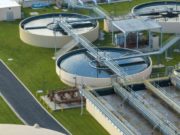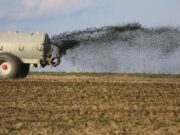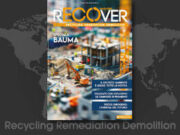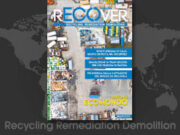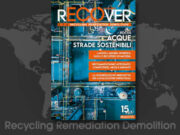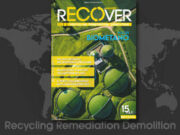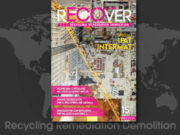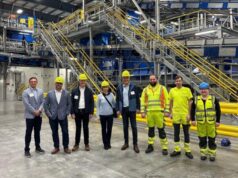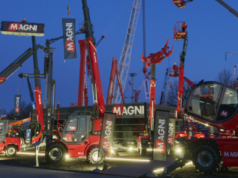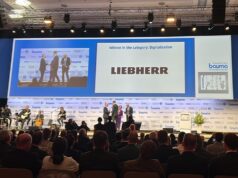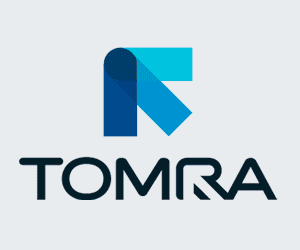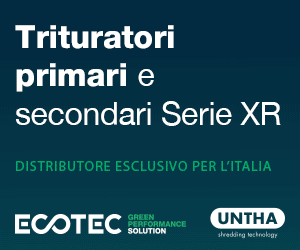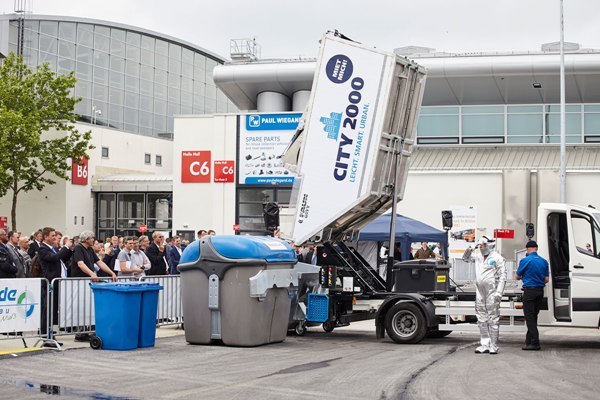
Efficient waste management is one of the great challenges of our time—and new digital technologies can make life much easier for municipalities, residents and companies. The spectrum of innovations ranges from smart waste containers to self-learning sorting technologies. IFAT 2020 in Munich will introduce the latest developments in this field.
Just as any other sector, the waste and recycling industry is trying to exploit the opportunities offered by digitalization. One example: for a number of years there have been various ideas to make waste containers “smart” by means of sensors, data processing and communication technologies. In many cases, start-ups are at the forefront of this development, for instance the Polish founding team of Bin-e: the young company created an intelligent waste container that uses artificial intelligence to automatically separate the waste into different groups and additionally compress them. A level sensor informs the disposal company when the container should be emptied.
On-demand service in waste management
This “on-demand service”, which other companies also offer as a core element of their digital waste management solutions, can already be used in a number of areas—for instance, at depot container sites on public roads or in the industry, for example, for large containers for glass and paper. “However, further analysis is needed to assess whether this sensor technology also has positive ecological and economic effects when used for domestic waste collection,” emphasizes Patrick Hasenkamp, Vice President of the Association of Local Utilities (VKU). In the worst case, a demand-driven service could cause more transport operations than the normal collection. Waste containers equipped with level sensors are currently being tested in Bochum and Darmstadt.
Construction site waste management by app
Digitalization can also be the key to completely new, successful business models in the waste management landscape. One such is Wastebox.biz. This app allows (construction) companies to easily, quickly and transparently organize the disposal of their construction waste with the smartphone. In just a few minutes, the program reports orders directly to the nearby drivers of regional waste disposal companies. “This improved logistics system helps to reduce traffic volumes and thus carbon dioxide emissions, especially in cities and municipalities,” says Christina Homann, Managing Director of Wastebox Deutschland GmbH. The company is a merger of Veolia and Pink Robin GmbH, a subsidiary of Saubermacher Dienstleistungs AG from Austria. The wastebox.biz platform has been in existence in Austria for over three years and on an international expansionary course since its partnership with Veolia in 2018.
Adaptive robot gripper arm sorts lightweight packaging
In plastic recycling, the aim is to further optimize sorting—and to do so as economically as possible. Here too, artificial intelligence is a promising tool for the future. In its light packaging sorting plant in Leipzig, where a sensor-supported robot gripper arm has been tested since November 2018, the Alba Group shows how this can look like. Currently, the task of the fast picker is to distinguish between silicone cartridges and polyethylene packaging and to sort them out—a task that commercially available near-infrared separators, for example, are not capable of. With this innovative system, a sensor unit mounted above the sorting belt scans the incoming waste and detects its characteristics. Instead of following a programmed routine, a software processes the sensor data in real time. The robot arm then receives a command to grab the target object and carry it to the correct container. “The system is capable of learning—and thus it is also equipped for new challenges,” says René Ottlinger. The Technical Director at Alba continues: “At best, this technology enables us to react flexibly to changes in the material flow and the entire recycling process.”
IFAT 2020 will offer a comprehensive overview of all current technology, logistics and service trends in waste management. However, the world’s largest environmental technology fair also covers all other areas of the industry—from air pollution control, drinking water supply and wastewater treatment to resource conservation. IFAT will take place from May 4 to 8, 2020 at the Munich trade fair center.








